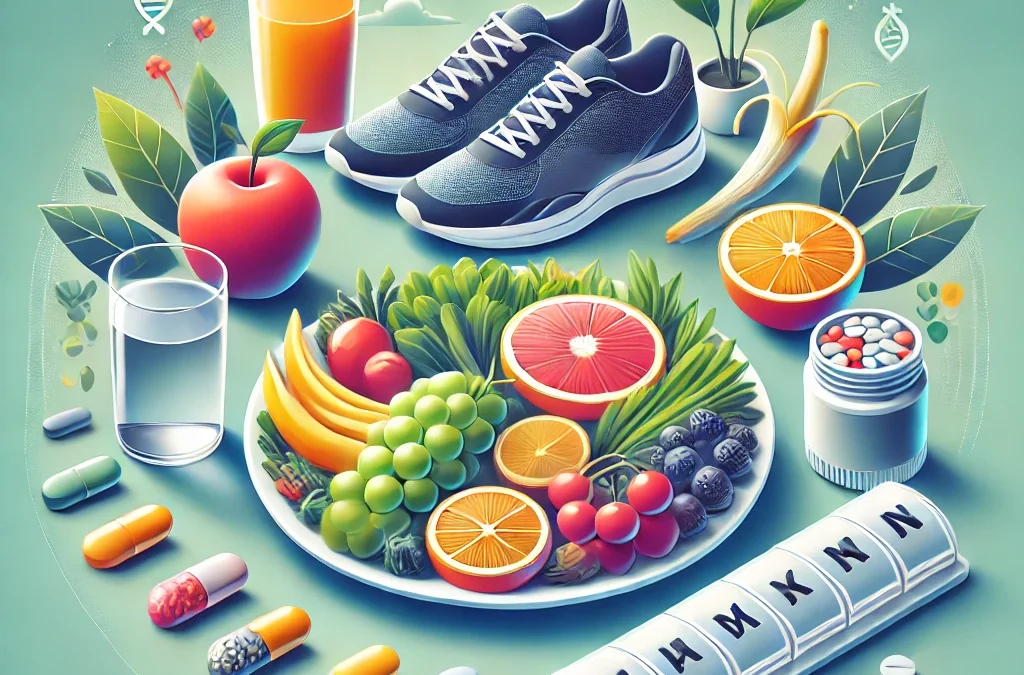5 Lifestyle Changes That Make Your Medications More Effective
Medications play a vital role in managing chronic conditions, alleviating symptoms, and improving overall health. However, the effectiveness of medications doesn’t solely depend on the pills themselves—it’s also influenced by your lifestyle choices. Factors like diet, exercise, and daily habits can significantly impact how your body processes medications, enhancing their efficacy or, in some cases, reducing their effectiveness.
In this article, we’ll explore five actionable lifestyle changes that can help you get the most out of your medications while improving your overall health.
1. Maintain a Balanced and Consistent Diet
What you eat—and when you eat it—can have a profound effect on how your body absorbs and metabolizes medications. Certain foods can enhance the efficacy of medications, while others may interfere with their absorption or effectiveness.
a. Key Dietary Tips
- Take Medications as Directed: Some medications work better when taken with food, while others require an empty stomach for optimal absorption. Always follow the specific instructions provided by your doctor or pharmacist.
- Include Nutrient-Rich Foods: A balanced diet that includes plenty of fruits, vegetables, whole grains, lean proteins, and healthy fats can support your overall health and ensure your body has the nutrients needed to metabolize medications effectively.
- Avoid Food-Drug Interactions: Be aware of specific foods that can interfere with certain medications:
- Grapefruit and Grapefruit Juice: Can interfere with statins, blood pressure medications, and certain antidepressants by affecting how the liver processes these drugs.
- Vitamin K-Rich Foods: Leafy greens like spinach and kale can reduce the effectiveness of blood thinners like warfarin.
- Calcium-Rich Foods: Calcium can interfere with the absorption of certain antibiotics like tetracyclines and fluoroquinolones.
b. Stay Hydrated
Dehydration can slow down the absorption of medications and may increase the risk of side effects. Drinking enough water throughout the day helps your body process medications efficiently.
2. Incorporate Regular Physical Activity
Exercise is not only essential for maintaining overall health but also plays a role in improving the effectiveness of certain medications. Regular physical activity can enhance how your body responds to medications by improving circulation, metabolism, and overall physiological function.
a. Benefits of Exercise
- Improves Drug Absorption: Exercise increases blood flow, which can help medications circulate more effectively throughout the body.
- Boosts Insulin Sensitivity: For individuals with diabetes, exercise can enhance the effectiveness of insulin or other diabetes medications, improving blood sugar control.
- Reduces Blood Pressure: Exercise complements the effects of antihypertensive medications, helping to manage blood pressure more effectively.
b. Finding the Right Balance
- Consistency Over Intensity: Even moderate exercise, such as walking, swimming, or yoga, can have significant benefits. Aim for at least 150 minutes of moderate aerobic activity per week.
- Tailor Exercise to Your Condition: Speak with your doctor about the best types of exercise to complement your medications. For example, weight-bearing exercises are ideal for individuals taking osteoporosis medications.
3. Prioritize Sleep and Stress Management
Sleep and stress levels can impact how your body processes medications and your overall response to treatment. Poor sleep and chronic stress may reduce the efficacy of certain drugs or exacerbate their side effects.
a. Sleep’s Role in Medication Efficacy
- Improves Metabolism: A well-rested body is more efficient at metabolizing medications.
- Reduces Side Effects: Medications for pain or anxiety may work more effectively when paired with adequate sleep, as the body is better able to repair and recover during rest.
b. Manage Stress for Better Outcomes
- Stress and Cortisol Levels: Chronic stress increases cortisol levels, which can interfere with the effectiveness of medications like antidepressants or immune suppressants.
- Mindfulness Practices: Techniques such as meditation, deep breathing, or tai chi can help reduce stress and improve your body’s response to medications.
4. Avoid Harmful Substances
Certain substances, like alcohol and tobacco, can interfere with medications, making them less effective or increasing the risk of side effects.
a. The Impact of Alcohol
- Liver Function: Alcohol can strain the liver, the primary organ responsible for processing many medications. This can reduce the efficacy of drugs like pain relievers, antidepressants, and cholesterol-lowering medications.
- Increased Side Effects: Combining alcohol with medications like sedatives, antihistamines, or antidepressants can amplify drowsiness and other side effects.
b. The Impact of Smoking
- Drug Metabolism: Smoking can speed up the metabolism of certain medications, reducing their effectiveness. For example, smoking decreases the efficacy of blood pressure medications and antipsychotics.
- Quitting Benefits: Quitting smoking not only improves your overall health but also enhances the effectiveness of many medications, including those for cardiovascular and respiratory conditions.
c. Caffeine Awareness
While moderate caffeine consumption is generally safe, excessive intake can interfere with medications for anxiety, depression, or high blood pressure.
5. Build a Routine and Stick to It
Consistency is key when it comes to medication effectiveness. Developing a routine helps ensure you take your medications at the right time, in the right way, and without missing doses.
a. Create a Medication Schedule
- Use Tools: Set alarms, use a medication app, or organize pills in a weekly pill organizer to stay on track.
- Timing Matters: Take medications at the same time each day to maintain consistent levels in your bloodstream.
b. Avoid Missing Doses
- Why It Matters: Missing doses can lead to fluctuations in medication levels, reducing efficacy and potentially worsening your condition.
- What to Do If You Miss a Dose: If you miss a dose, follow your doctor’s or pharmacist’s instructions on how to proceed. Never double up on doses unless explicitly advised.
c. Combine Medications with Routine Activities
Link your medication schedule to daily habits, such as taking your pills after brushing your teeth or during meals. This creates a natural reminder and reduces the likelihood of missed doses.
Conclusion: Lifestyle Changes That Empower Your Health
By making intentional lifestyle changes, you can maximize the benefits of your medications while improving your overall health and well-being. A balanced diet, regular exercise, proper sleep, avoidance of harmful substances, and a consistent routine can all contribute to the effectiveness of your treatment plan.
Remember to work closely with your healthcare provider to tailor these lifestyle changes to your unique needs and medication regimen. With the right habits in place, you can take control of your health and ensure your medications work as effectively as possible.
Save Big on Prescription Drugs with ExpressMedsCanada
Are high prescription drug costs straining your budget? At ExpressMedsCanada.to, you can access the same safe, high-quality medications you trust—at a fraction of the price! With government-regulated pricing and a commitment to customer satisfaction, we make it easy to save on essential medications.
🌟 Why Choose ExpressMedsCanada?
- Affordable Prices: Save up to 80% on popular prescription drugs compared to U.S. prices.
- Trusted Quality: All medications are dispensed by licensed Canadian pharmacies.
- Convenient Ordering: Easy online ordering with fast, reliable shipping.
- Secure and Certified: Verified by trusted organizations for your peace of mind.
🛒 Start Saving Today!
Visit ExpressMedsCanada to browse medications, compare prices, and place your first order. Take control of your healthcare costs without sacrificing quality. Your health—and wallet—deserve it!
📦 Click here to order now: https://expressmedscanada.to



